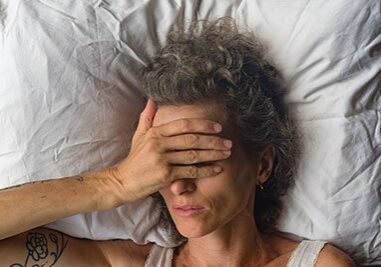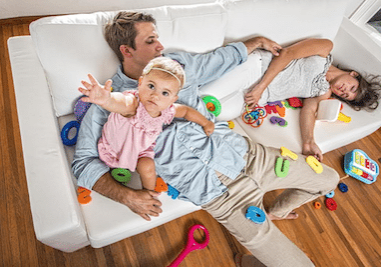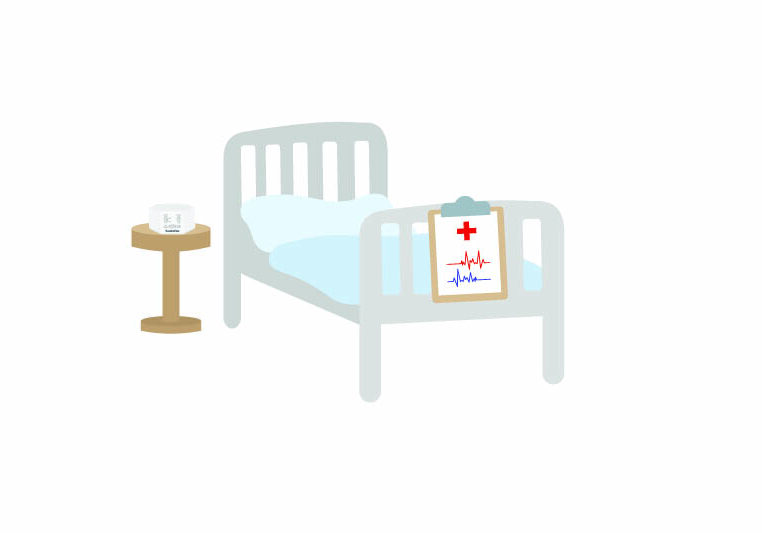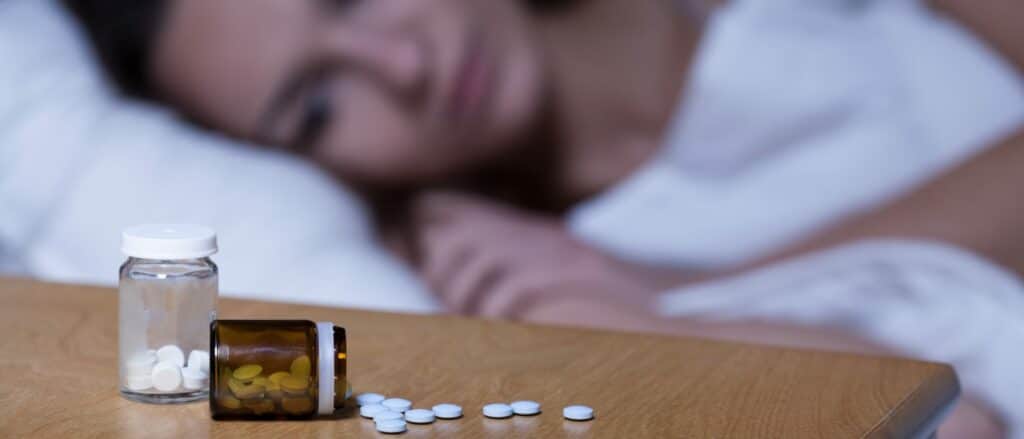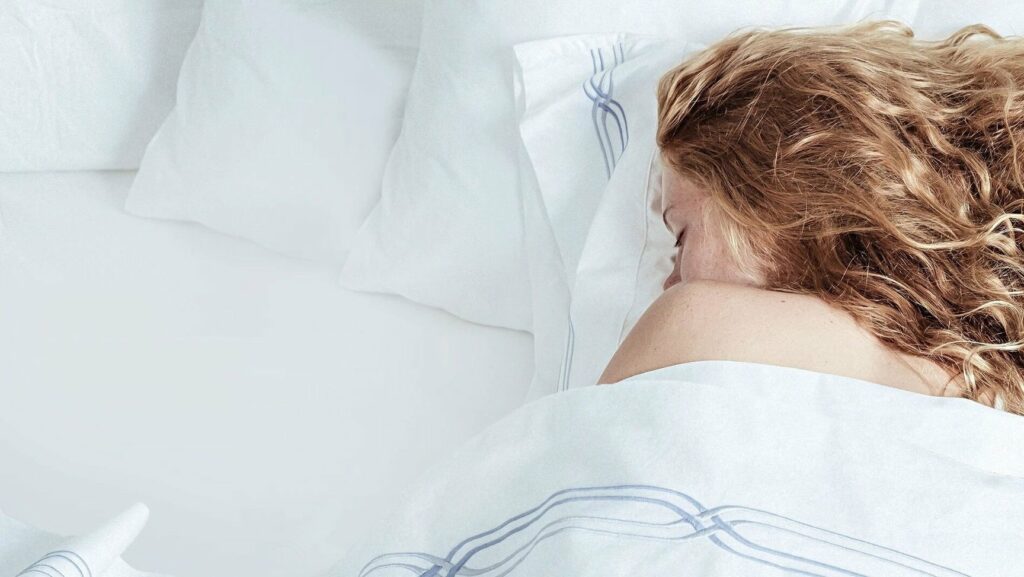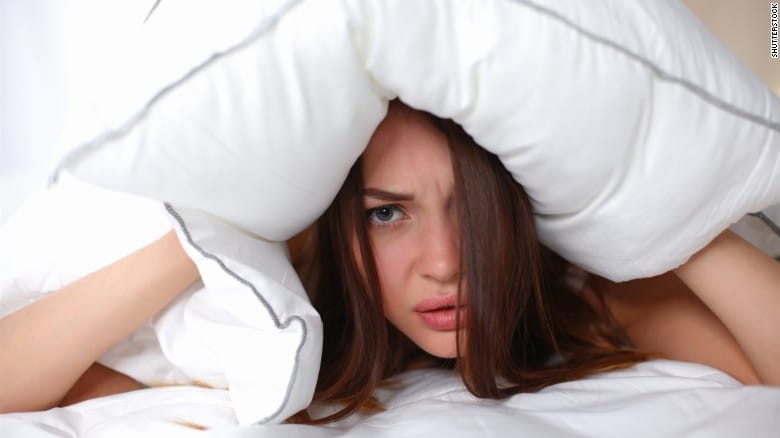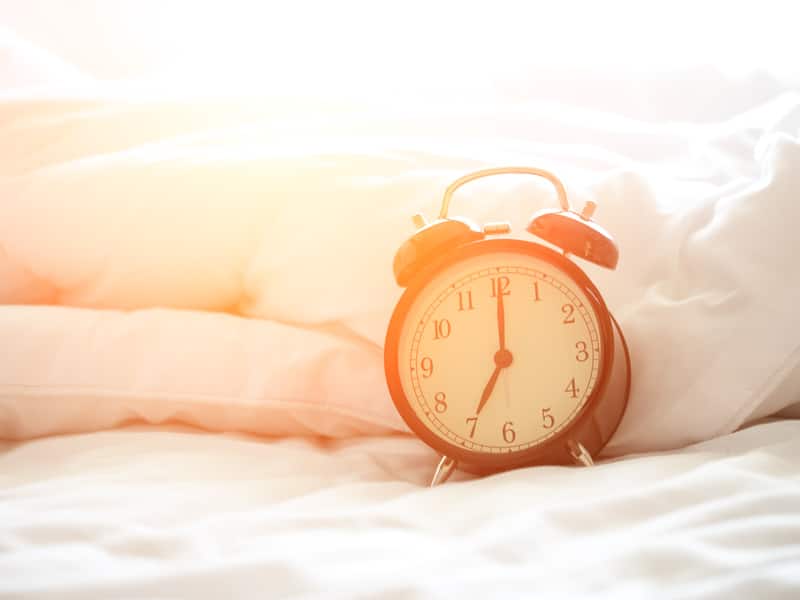
SLEEP NEEDS BY AGE AND GENDER
The Importance of Sleep
When you think of what makes up a healthy lifestyle, diet and exercise come to mind, but did getting enough restful sleep? Some researchers consider the lack of sleep that many people get to be at epidemic levels.
According to the National Institutes of Health, lack of restful sleep causes a long list of issues:
- higher rates of obesity, high blood pressure, heart disease, stroke, Alzheimer’s disease, certain cancers, and diabetes
- higher rates of depression and anxiety
- poor mood, energy, and motivation
- decreased focus, memory, and decision-making abilities
- decreased coordination, athletic performance, and higher rates of accidents
- lower levels of self-control, irritability, and more relationship problems
- inability to manage stress-small problems feel like much larger problems
- lowered immune function, frequent colds
- decreased sex drive
How Much Sleep Do We Need?
The National Sleep Foundation published a study by 18 sleep scientists and researchers in Sleep Health that shows the number of hours needed by all ages, divided into 9 age divisions. They’re listed as ranges because gender has an influence, as well as lifestyle and health.
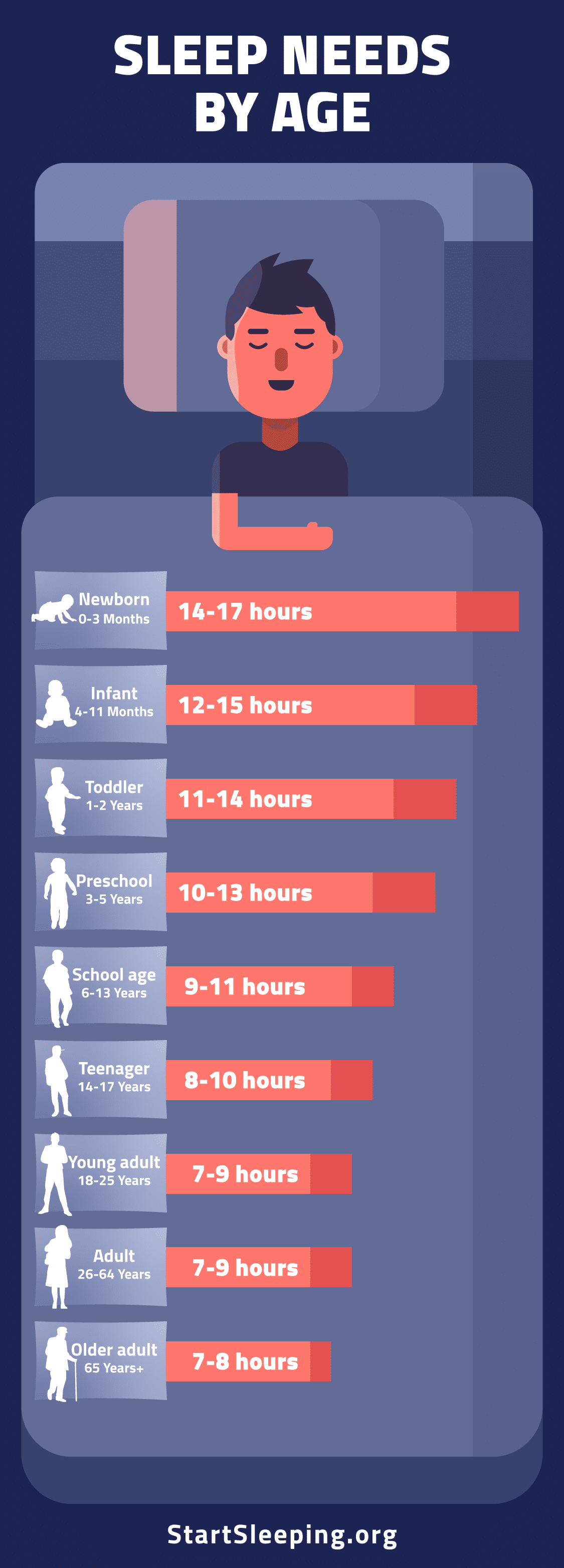
Newborns and Infants
Newborns don’t have an established circadian rhythm; it isn’t established they’re 2-3 months old. Infants tend to sleep in several phases throughout the day (polyphasic), sleeping from 2.5 to 4 hours at a time. By around 12 months, infants start sleeping more at night. At this point, they start to sleep more like adults in that there are no bodily movements during REM (rapid eye movement) sleep, which is when people dream. Previous to 12 months, babies will move during REM sleep.
School-Age Children
Recognizing when school-age children aren’t sleeping enough can be difficult as tired kids tend to not slow down, they speed up. They’ll engage in behaviors that look like ADHD. This includes resisting going to bed at night, even though they’re tired. Student grades and attendance can also reveal a sleep issue for your child.
Children with ADHD can cause sleep loss in children, as well as other issues such as sleep apnea (when people stop breathing for periods throughout the night). It was previously believed that sleep apnea only occurred in adults, but now the American Academy of Pediatrics recommends ask about and screen for sleep apnea in children.
Teens
According to the National Sleep Foundation, circadian rhythms shift after puberty, making teens want to go to bed after 11 pm and wake up later. With teenagers having the earliest start times, they are often getting up at 5 am to be at school by 7 am, which makes it rarer that a teen will get enough sleep. One study found that only 15% of teens reported sleeping 8.5 hours per night.
Because teens are sleep-deprived during the week, they sleep more on the weekend, which can make the problem worse. One of the top recommendations from sleep experts is to fall asleep and wake up at the same time every day.
A problem that many teens share with adults is the use of back-lit devices late at night, which can prevent sleepers from getting quality sleep.
Lack of sleep in teenagers has a long list of drawbacks, including:
- drowsy driving leading to car accidents
- reduced emotional control, leading to more fighting with parents, siblings, and peers
- poor cognitive ability, focus, decision making, and reaction time, leading to poor grades, athletic performance, and choices
- poor impulse control, which can create and strengthen bad habits
- skin issues such as acne
Adults
Adults tend to not get enough sleep for a list of reasons:
- stress from job and family
- consuming caffeine too late in the day
- looking at blue-light emitting devices within 90 minutes of going to bed
- inconsistent sleep schedule
- eating too late
- lack of exercise
- issues with the mattress: too hot, too soft or hard, and/or old
Depression rates among college-aged young adults (ages 18-25) are high, and this age group is the most likely to have serious thoughts about suicide at 7.4%. Depression is often accompanied by life changes, and this period in life is often filled with changes. Sufferers of depression often suffer from insomnia, and the relationship between sleep and depression is complex. Those who suffer from depression may have trouble getting to sleep and staying asleep, and those who don’t sleep enough are more likely to be depressed, created a cycle.
Anxiety is another condition that can prevent restful sleep. Anxiety rates are highest among middle-aged adults (ages 36-55), and anxiety is the most common mental illness in the U.S., with over 40 million sufferers, or 18.1% of the population every year. According to the Anxiety and Depression Association of America (AADA), over 50% of adults claim that anxiety affects their ability to sleep. And similar to depression, lack of sleep can trigger anxiety, and anxiety can cause a lack of sleep.
Seniors
Many adults aged 65 and older nap during the day because they don’t get enough quality sleep at night. One of the reasons they don’t sleep well is because of medical conditions such as restless legs syndrome (RLS). The National Institutes of Health estimate that 10-35% of seniors have RLS, which results in uncomfortable sensations in the legs creating an irresistible urge to move them. Symptoms occur in the evening and often during sleep. Around 80% of people with RLS also have periodic limb movement disorder (PLMD), and one study found that around 45% of all seniors have at least mild PLMD.
Many seniors also suffer from illnesses and take medications, both of which can disturb sleep.
Another common issue among seniors is that it takes them longer to go to sleep, with one study showing 13% of men over 65 and 36% of women taking more than 30 minutes to fall asleep.
According to the National Sleep Foundation, seniors have trouble sleeping for several reasons. One is the change in the phases of sleep, where many seniors spend more time in the lighter phases of sleep and less in the deeper, more restorative phases.
Sleep fragmentation (waking up during the night) is also common, which greatly reduces the ability to wake up well-rested.
Women
Women need on average 20 more minutes per night more than men, though some women need more than that. One theory as to why is because women multitask more than men and have busier schedules, which results in their brains using more energy and therefore needing more recuperation. If this theory is correct, then men that have complex jobs that require a lot of decision-making and lateral thinking will need more than the average male as well. Another possible reason is the monthly hormone cycle that occurs with menstruation.
According to the National Institutes of Health, women do sleep more than men. However, several things can make it difficult for women to get enough quality sleep:
- Their male partners’ snore (40% of men snore as opposed to 24% of women)
- Menopause
- Pregnancy
- Stress from family and job responsibilities
Sleep Needs During Pregnancy
Pregnant women need more sleep, especially in their first trimester, which includes more sleepiness during the day. This is due to the rise in progesterone, as well as the metabolic changes the body is going through.
They also are more likely to experience parasomnias, which are unusual behaviors that occur just before falling asleep, during sleep, or when waking up. Common parasomnias for expecting mothers are restless legs syndrome (RLS), snoring, and insomnia.
Expectant mothers in their first trimester will also have more frequent bathroom visits to urinate, due to the uterus pushing on the bladder. Swollen breasts, cramps, and nausea can also make it hard to fall asleep.
In the second trimester, women tend to sleep better, as many of the changes have already occurred in the first trimester. However, it’s not uncommon to experience leg cramps (often in the calves) as well as heartburn (due to the uterus pushing on the stomach).
In the third trimester, sleep gets worse again due to (RLS), frequent urination, anxiety about the upcoming delivery, and lower back pain.
After the baby is born, new mothers will often find it easier to sleep because they’re sleep-deprived. Babies are often awake every hour to few hours, so mothers can’t get into the deeper, restful phases of sleep, so when they get a chance to sleep, the brain will try to make up the sleep deficit as quickly as possible.
Breastfeeding is sleep-inducing because the hormone that promotes lactation, prolactin, is a soporific, or sleep-promoting.
Can You Make Up Your Sleep Debt?
Some people believe that they can not sleep enough for several days or more and make it up when they get around to it. For many people, on a short-term basis, that looks to be true. If you are sleep deprived during the week, you may be able to make it up during the weekend.
But with long-term sleep debt, the evidence isn’t good for being able to make it up. According to the Clayton Sleep Institute, research showed that six nights of sleep deprivation resulted in negative impacts on attention, daytime sleepiness, and inflammation. After a catch-up period to make up the sleep debt, attention levels didn’t catch up. Cortisol, the prime marker for inflammation, didn’t decrease either. A separate study showed that chronic sleep loss results in a loss of neurons that are responsible for alertness and cognition.
Another issue with sleep debt is that when you sleep too little, then sleep a lot, your circadian rhythm is disturbed. Many sleep experts believe that the number one thing you can do to start sleeping better is to fall asleep and wake up at the same time every day, regardless of whether it’s a weekday or weekend. Have a regular sleep routine that gets you well-rested, and there will be no need for a feast or famine sleep routine.
If you have a long-term sleep debt, experts recommend adding an extra hour or two of sleep per night, with no alarm clock, until you gradually start sleeping less.
It’s also a good idea to make sure that you’re getting the highest quality rest by following a good sleep protocol, which includes:
- understanding your circadian rhythm
- the role of exercise in sleep
- how food and drink can help and hurt you
- how to establish a nightly routine and reduce stress
- creating a good sleep environment
The Truth About Naps
A 15 to 20-minute nap can be a great way to help get rid of a sleep deficit. If you sleep longer than 20 minutes, you risk going into a deeper sleep, and when you wake up you could be groggy for a while. The length of a full sleep cycle is around 90 minutes, so if you sleep for 90 minutes, you may not wake up groggy, though it may be more difficult for you to fall asleep at night.
Early risers tend to want to nap around 1 pm, and late risers an hour or two later. As long as you nap early in the afternoon, and not in the evening, it shouldn’t affect your ability to sleep at night.
Many countries in Central and South America have afternoon “siestas,” as well as several countries in Europe. Research has suggested that people wanting to nap around 1 or 2 in the afternoon isn’t necessarily the result of a blood sugar crash from lunch. The Romans in the 1st century B.C. used to divide their day into sections, and the period 6 hours after waking up at 6 am (noon) was for napping and called the “sexta” or the sixth hour after waking, which later became known as “siesta.” Dr. Sara Mednick, author of “Take a Nap! Change Your Life,” says that our circadian rhythms are programmed for one long sleep at night, and one short one in the afternoon.
The first research into naps came from Jurgen Aschoff in the early 1950s in abandoned World War II German bunkers that had no natural light. Subjects stayed in the bunkers and were told to sleep whenever the felt tired, and they slept for one long period of 6 to 7 hours, then 12 hours later for a second period of an hour or less.
Dr. Moira Junge, psychologist, and spokesperson for the Sleep Health Foundation, believes that people would be healthier if they took naps. He says that all human beings experience a post-lunch dip whether they’ve eaten or not. But what you eat can make that dip more intense. Eating a carbohydrate-based lunch will make the dip worse, eating a protein-based lunch will reduce it.
Sleep Deprivation in Babies and Children
The younger a person is, the more sleep they require to help facilitate the development of a growing body and brain. According to the National Sleep Foundation, when a child hasn’t slept enough, they may not always slow down, but they may speed up. Their behavior may look more like symptoms of ADHD, and they’ll resist going to bed.
A few things that can help get a child to bed include:
- a bedtime between 7 pm and 8 pm
- a consistent sleep routine, such as brushing their teeth, reading a story, followed by lights out at the same time every night
- no sugar and caffeine in the evening
Signs of Sleep Deprivation in Adults
Do you know anyone that brags about not needing more than 4 or 5 hours per sleep per night? Have you wondered how much more work you could get done if you didn’t need to sleep 7-9 hours per night? Do you belong to a company that looks at not sleeping as a badge of honor?
It turns out that lack of sleep can make you a lot less productive, and only rare people can be well-rested on 4-5 hours per night of sleep.
You may be sleep deprived if you find yourself doing any of these things:
- want to sleep after eating
- fall asleep while reading or while watching t.v.
- you hit the snooze button multiple times in the morning
- every once in a while you “crash” and sleep for many hours on end
- rely on caffeine and sugar to keep your energy levels up
You can be sleep deprived even though you may sleep the recommended 7-9 hours per night because you’re not getting quality sleep. If you have any of the following problems, you’re probably not getting enough restful sleep:
- it takes you a long time to fall asleep once you go to bed
- you wake up multiple times throughout the night
- you wake up feeling tired
Sleep Deprivation and Weight Gain
Many people attribute their inability to lose weight to a lack of disciple. They feel guilty because they can’t stick to a diet and exercise schedule, which can lead to emotional eating.
The reality for many people struggling to lose weight is that the lack of restful sleep impacts their brain’s hormone production. When you don’t get enough sleep, your leptin levels go down, and as leptin is the hormone that helps you feel satisfied and stop eating, you feel the need to continue eating.
Your ghrelin levels also go up, which is the hormone that stimulates your appetite.
In addition to ghrelin and leptin levels, researchers at the University of California Berkeley have found that when people are tired, they’re more likely to eat foods that are bad for them. This can become a vicious cycle where you don’t sleep well, so you eat more food, and worse food, which may make you sleep worse.
How to Get More Restful Sleep
If you suspect that you have a sleep disorder, it’s best to talk to your doctor. But most people can look at a thorough sleep hygiene program and find at least a few things that they could improve on. Some of the most common mistakes that people make that reduce the amount of restful sleep are:
- Exposing their brain to blue light from their cell phone, tablet, or tv within a few hours of going to bed. Blue light tells your brain that it’s time to be active and blocks the production of melatonin, the “sleep hormone.”
- Consuming caffeine and sugar before bed.
- Eating too much before bed.
- Reading work emails in bed and working until bedtime.
- Having a stressful lifestyle.
- Going to bed and waking up at different times every day, which disturbs your circadian rhythm.
- Sleeping on a mattress that’s too hard, too soft, or old. If you wake up with back or joint pain, you may be on the wrong mattress.
- Sleeping on a mattress that gets too hot.
- Having anxiety that you won’t sleep good, which can prevent you from sleeping well.
- Lack of exercise, which is a great way to relieve stress and has been linked to better sleep.
There are also a variety of mistakes people make with their posture and sleep position that can lead to a poor night’s sleep, especially anything that prevents your spine from resting in a neutral position.
- Using a pillow that is too thick or too thin can lead to an under or over supported neck. Pillow thickness is especially tricky with side sleeping. You can read more about this on our side sleeping pillow guide.
- Sleeping on a mattress that is too firm or too soft or isn’t a good match for your sleeping position. Back and stomach sleepers should generally seek out a firmer mattress while side sleepers generally need a softer mattress. You can learn more from our mattress guide for side sleepers
- We see a lot of people ignoring their leg position. Depending on how your legs are positioned they can have a dramatic impact on your hips and lower back. Back sleepers should consider elevating their legs. The best way to do this is with a foam wedge. Our favorite is the Ebung Foam Wedge which is available on Amazon. It pretty much eliminates the tension in your lower back by rotating your hips backward. Side sleepers should try to put a gap between their legs using a foam roll or a pillow for similar reasons. When your legs are touching the high leg rocks your hips and bends your lower back.
- Undersupported lumbar or lower back is a common issue for back and side sleepers. Both can benefit from a lumbar pillow. Back sleepers only need a thin pillow and could potentially get away with a folded towel, while side sleepers usually need a thicker pillow. We created an in-depth guide on lumbar pillows for sleep, check it out.
Q: How much sleep do I need?
A: The amount of sleep you need depends on your age, with younger people needing more sleep. Adults need 7-9 hours per night, but in rare cases, people can function well on 4-5 hours of sleep.
Q: Do sleep needs change by age?
A: Yes. The younger a person is, the more sleep they need. Newborns sleep 14-17 hours per day, infants 12-15 hours, teens 8-10 hours, adults 7-9 hours, and seniors 7-8 hours.
Q: How many hours of sleep do women need?
A: Women needs on average 20 minutes more sleep per night. One theory explains that women multitask more than men and have busier schedules, so their brains use more energy and need more recuperation.
Q: Is it ok to get 5 hours of sleep?
A: Lack of sleep makes you less productive; only rare people can be well-rested on 4-5 hours of sleep. Occasionally getting 5 hours of sleep is okay, but on a regular basis isn’t healthy for most people.
Q: Do I really need 8 hours of sleep?
A: Most people need 7-9 hours of sleep per night, but in rare cases, people can be productive on less sleep. Many people mask the effects of lack of sleep with caffeine and sugar.
Source: https://startsleeping.org/sleep-needs/
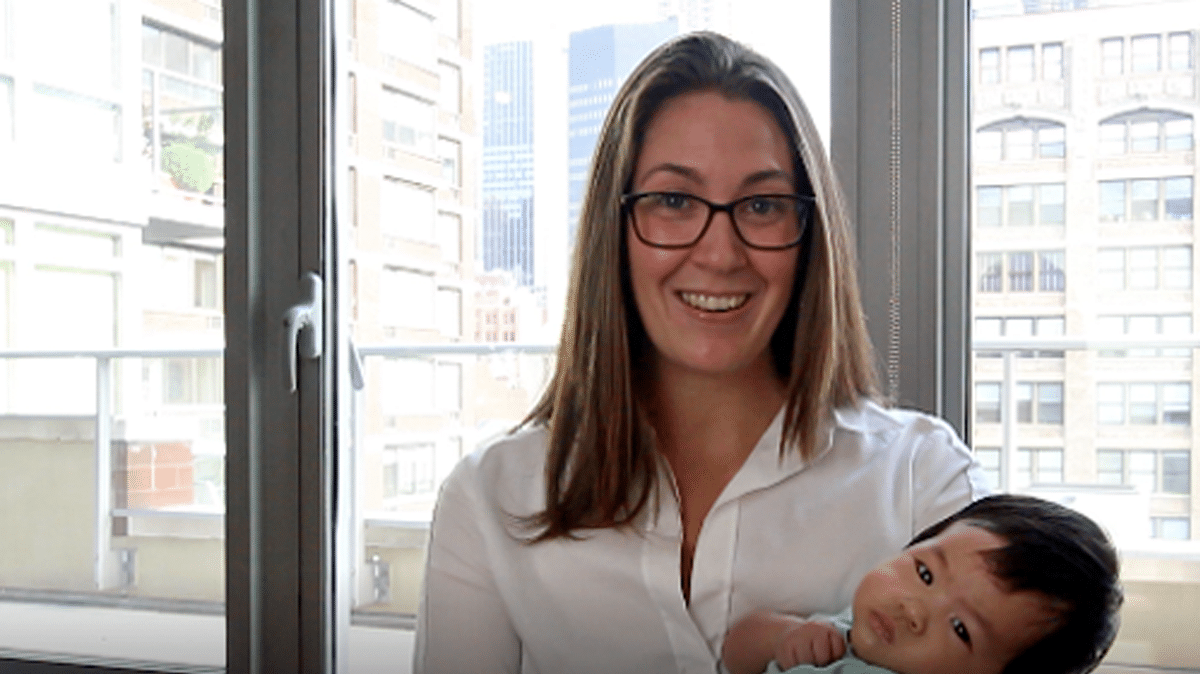
Don't just take our word for it.
We don’t take the term “sleep like a baby,” lightly. We know you don’t either. Want advice from a baby whisperer? Our sleep trainers understand.
